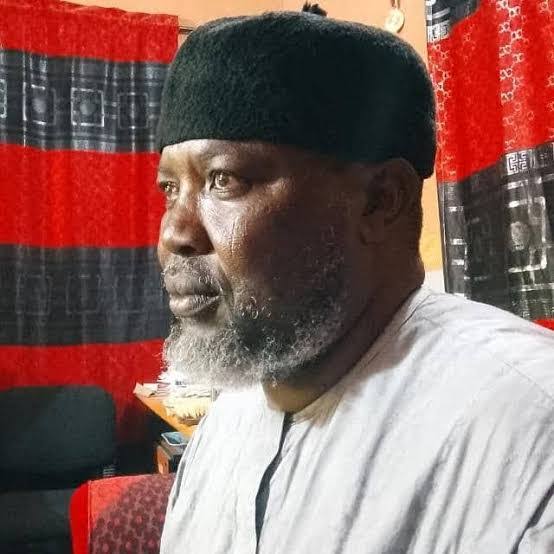Nigeria at a Crossroads: The danger of one-party rule for democracy and national unity, by Dr Tukur Madu Yemi
Nigeria’s democracy stands at a perilous crossroads. Although our Constitution clearly provides for a multi-party system, recent political developments suggest we are drifting toward a de facto one-party state. If this trend continues unchecked, it could erode democratic institutions, weaken good governance, and exacerbate the deep-rooted divisions that threaten our national unity.
The Growing Defection Trend
In recent months, there has been an alarming surge in political defections. Members of the National Assembly, governors, and other influential figures are abandoning their parties to join the ruling party—not out of ideological alignment or patriotic duty, but out of self-interest and fear of political isolation. These defections, motivated by personal gain rather than public good, represent a betrayal of democratic values. Politicians who once opposed certain policies or platforms now embrace them uncritically, not because they have changed their convictions, but because they seek power and protection.
This dangerous trend sends a message to the electorate: principles no longer matter—only proximity to power does. It undermines citizens’ trust in the political process and fosters cynicism about the role of governance.
The Dangers of One-Party Rule
Democracy is built on checks and balances, transparency, and accountability—all of which are endangered when a single party dominates every tier of government. A one-party system suffocates dissent, suppresses innovation, and fosters authoritarian tendencies.
When power becomes concentrated in one political group, the legislative arm becomes an echo chamber, oversight institutions lose their independence, and the judiciary faces subtle but growing pressure to conform. The media is stifled, and civil society is sidelined. In such an environment, corruption thrives, minority voices are silenced, and national disunity deepens.
Historical Lessons: A Return to the Past?
We’ve been here before. From 1999 to 2015, the People’s Democratic Party (PDP) enjoyed overwhelming dominance. That unchecked power led to arrogance, widespread corruption, and the erosion of institutional credibility. Disillusionment with the PDP eventually paved the way for a historic transfer of power. But now, we are witnessing a return to the very tendencies that Nigerians voted against in 2015—only this time under a different name.
READ ALSO: An open letter to the new ASUU President, Comrade Christopher Piwuna, by Dr Tukur Madu Yemi
Let us not forget: history does not forgive those who fail to learn from it.
The Stakes for Nigerians
This is not a partisan issue—it is a national emergency. If Nigerians allow this drift toward one-party rule to continue, we risk:
1. Weakening Accountability: Leaders become less answerable when opposition voices are drowned out.
2. Suppressing Civil Liberties: Fear and repression can replace open dialogue.
3. Stalling Policy Innovation: Lack of competition leads to lazy governance.
4. Deepening Corruption: Absolute power breeds absolute impunity.
5. Alienating Minorities: Ethnic, religious, and regional exclusion worsens.
6. Provoking National Disunity: Citizens outside the ruling circle feel marginalised and resentful.
7. Eroding Institutional Trust: Institutions become tools of party politics, not servants of the people.
This growing imbalance is not just a threat to opposition parties—it is a threat to the very soul of Nigeria’s democracy.
Global Warnings: Look Beyond Our Borders
We need not look far to see what one-party rule can lead to. In Zimbabwe, prolonged dominance by ZANU-PF collapsed a once-promising economy. Venezuela’s ruling party turned a resource-rich nation into a humanitarian disaster. Russia’s democratic institutions have all but vanished under long-term one-party dominance.
Nigeria is not immune. If we continue down this path, we risk democratic backsliding and the consolidation of authoritarian rule under a democratic disguise.
What Must Be Done?
To rescue our democracy from impending collapse, bold and collective action is required:
Strengthen Political Institutions: INEC and the judiciary must be fiercely independent and trusted by all.
Reform Electoral Laws: Enforce consequences for undemocratic practices like party-switching after elections.
Empower the Opposition: Healthy democracies need strong, constructive opposition to hold power accountable.
Promote Civic Education: Nigerians must be politically literate to demand transparency and accountability.
Support Civil Society and Free Press: These are the watchdogs of democracy and must not be silenced or co-opted.
Encourage Ethical Leadership: Politicians must be judged by their integrity and vision, not party allegiance or ethnic origin.
A Call to All Nigerians
This moment calls for national introspection. Democracy does not thrive on silence and apathy—it thrives on vigilance, participation, and courage. Every Nigerian—voter, student, activist, religious leader, media practitioner, academic, and civil servant—must rise to defend the essence of our democracy.
The ruling party must resist the urge to crush opposition under the guise of national unity. True unity is not achieved through dominance, but through inclusion. Political diversity is not a weakness—it is our strength. Opposition voices, when constructive, are not threats but assets to national progress.
Conclusion: Our Future Depends on Balance
Democracy is not a zero-sum game. It is a collective commitment to nationhood—where the opposition critiques, the ruling party delivers, and citizens hold both accountable. Nigeria’s future lies not in the hands of one party or individual, but in our shared ability to uphold democratic values.
Let us, as Nigerians, resist the temptation of mortgaging our future for short-term political convenience. Let us build a democracy that is resilient, inclusive, and worthy of the sacrifices of our heroes past.
In the end, no political party is bigger than Nigeria. And no victory—no matter how decisive—is worth the death of our democracy.
Dr Tukur Madu Yemi writes from Federal University of Kashere, Gombe State. He can be reached via alhajitukur68@gmail.com
08066289200, 09024252525
Follow the Neptune Prime channel on WhatsApp:
Do you have breaking news, interview request, opinion, suggestion, or want your event covered? Email us at neptuneprime2233@gmail.com





